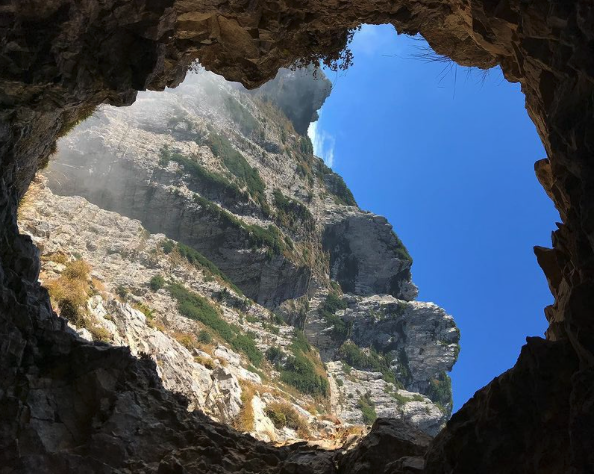587 days have passed since the WHO declared COVID a global pandemic. 587 days of “Remind me again, what day is it today?”, “You’re muted, we can’t hear you!”. 587 days of mental and physical fatigue. And perhaps most devastatingly, 587 days without Nonna’s homemade lasagna.
Graduate school can be an alienating experience. Long hours, numerous deadlines, never-ending to-do lists, imposter syndrome, all of which can lead to excessive stress and burnout. Yet in my experience, nothing feels more alienating and stressful than not knowing when you’ll be able to taste some fine Italian cuisine again. Or, you know, see your loved ones… That too.
I started my PhD in the fall of 2019 and at the time, I thought I knew what I was getting myself into. I kind of did, until COVID hit. So naive of me to not include a potential global health crisis in the equation. Had I known I’d have to live through a pandemic, I would have done things differently. I would have asked Nonna to bake me 500 pieces of lasagna to keep in my freezer, for example. Or I would have bought some fancy pajama sets. Had I known that my neighbours would be having a full on fashion show each garbage day, at least I could have been prepared.
Anyway, since figuring out time-travel is unfortunately out of the scope of my thesis, I would instead like to offer some advice to my fellow PhD students. Hopefully it will help us all keep surviving (and thriving!), and perhaps inspire future generations of young scientists experiencing “unprecedented” situations. So here are my ten top tips for surviving a pandemic:
1. When your parents call and ask you the dreaded “How is your PhD going?” question, tell them they should be focusing on more relevant matters like whether you managed to stock up on toilet paper for the week (because apparently everyone, at least here in Canada, has been having gastrointestinal issues since the beginning of the pandemic).
2. Once in a while, check in with the organizers of pre-pandemic, in-person conferences. Just ask them how they are doing. Let them know who you are. It will be easier for you to reach out to them when you randomly start missing free, low-quality buffet food and cheap “coffee”, or when you are running out of tote bags to go grocery shopping. Remember to add your home address to your signature at the end of each email.
3. Don’t waste your weekends on trying to improve your cooking skills or on cleaning your apartment. There isn’t a better time to complete those tasks than during the hours allotted to “writing up projects”. Sourdough does not taste the same if you bake it on non-working days. The space behind the fridge you have been meaning to clean? Wait until you start writing your next paper. Satisfaction guaranteed.
4. Never lose hope. Something will finally beat the length of the peer review process: the time it will take for you to be reunited with your loved ones. Or for your visa to be renewed. Everything is relative, even time spent waiting for red tape to clear.
5. Get yourself a pet. Even a stuffed one. Apparently, it’s the new trend to have cats and dogs appear in the background of a Zoom call. If getting a pet is unfeasible for you, consider recording your neighbor’s dog barking and simply press play the next time you need an excuse to mute yourself in a meeting.
6. Try to embrace the amount of light and warmth that comes into your apartment every day. They will both become distant dreams the first day you’ll be back in the lab.
7. If you need to pre-record a talk for a conference, let your landlord, your neighbours and, most importantly, the city mayor know what day and time you intend to record yourself. Only a few things are certain in life. One of them is that on the day you schedule your recording session, your neighbour will be using their leaf blower right outside your apartment, construction workers will be drilling holes in the street right below you, and all dogs in your building will be barking for the exact duration of your presentation. All noises will be gone once you get to the thank you slide.
8. Own your mistakes. Remember when you thought it was a great idea to buy those very uncomfortable but extremely cheap Ikea dining chairs because “I will be sitting on them only at meal times”? Well, now you get to appreciate them at every hour, minute, and second of the day. What a great idea you had, indeed.
9. Book an appointment with the hairdresser as soon as salons open again. Your partner was probably heavily intoxicated when they picked up the shears to give you a trim.
10. My last and perhaps most useful piece of advice is to never, ever ask when the pandemic is over. Do you enjoy when people ask you how much time you have left in your PhD? I didn’t think so.
So there you have it. While we haven’t yet found a way to take you to the PhD finish line more quickly, at least we have vaccines to accelerate the end of the COVID pandemic. Speaking of which…
11. If you haven’t already, go get vaccinated. Do you really want to sit on those Ikea chairs any longer?
Giulia Baracchini is a PhD student in neuroscience at the Montreal Neurological Institute at McGill University. Her research interests lie in understanding mechanisms of inter-regional communication in the brain and their behavioural relevance, particularly in the context of cognitive control. Specifically, she is investigating whether and how large-scale network architecture interacts with BOLD signal variability patterns, in healthy aging and preclinical Alzheimer's populations.





